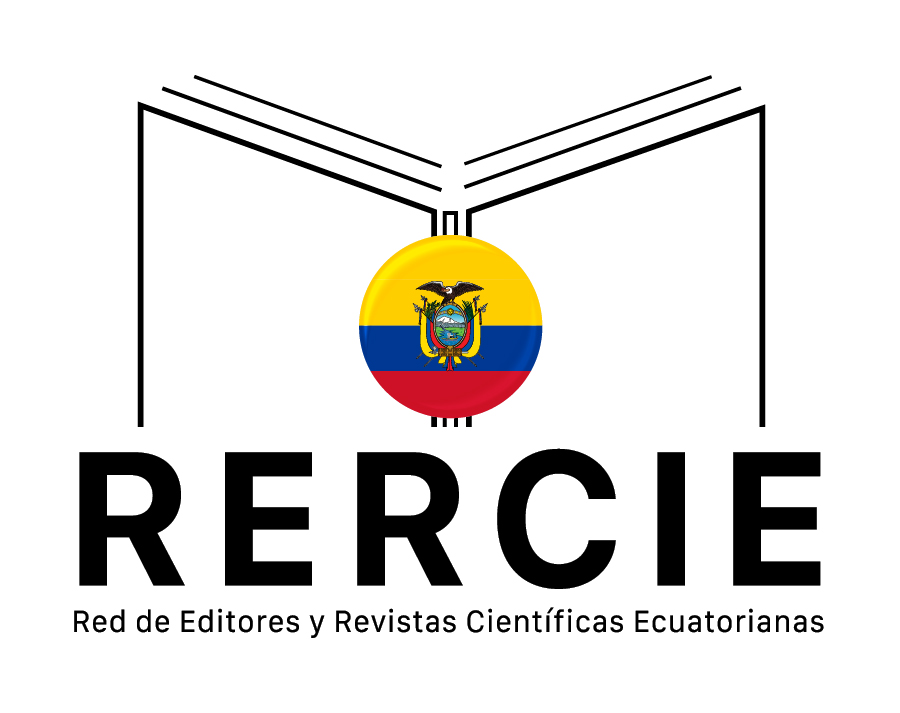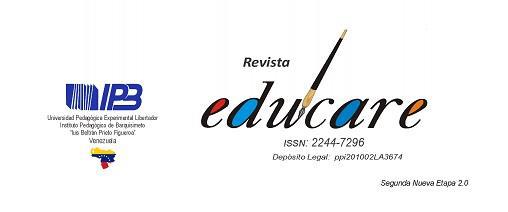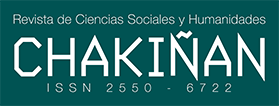RELACIÓN DE LA SABIDURÍA Y LA FELICIDAD EN DOCENTES DE ENSEÑANZA SECUNDARIA DEL ECUADOR
DOI:
https://doi.org/10.37135/chk.002.19.02Palabras clave:
Docentes, felicidad, psicología positiva, relación, sabiduríaResumen
El estudio de los aspectos positivos de la vida humana como el amor, la felicidad o la sabiduría tiene un papel relevante en la investigación psicológica, en especial para explotar el potencial humano innato. El objetivo de esta investigación se direcciona a conocer la relación entre los niveles de sabiduría y felicidad en una muestra de docentes de enseñanza secundaria de Ecuador. Mediante un paradigma post-positivista se recurrió a una metodología de tipo descriptiva, comparativa por género, correlacional y de corte transversal por medio de las pruebas escala tridimensional de sabiduría y cuestionario de felicidad de Oxford. En el estudio participaron 210 individuos (70,5 % femenino y 29,5 % masculino), con edades entre 20 a 60 años, docentes de enseñanza secundaria. El análisis mostró presencia de sabiduría moderada y de felicidad alta-moderada. No se presentan diferencias por género en las variables de interés (p> .05). Se encontró una relación baja positiva entre las variables de análisis con r= ,371; p< .01, por tanto, la sabiduría se relaciona con la felicidad, al ser un componente complementario en el desarrollo de la misma. Los hallazgos aportan información relevante para el desarrollo de la psicología positiva.
Descargas
Citas
Acevedo-Vergara, M., Avendaño-Becerra, M. y Moyano-Díaz, E. (2006). Propiedades psicométricas del inventario de felicidad de Oxford en trabajadores de salud primaria de Talca (Tesis de doctorado). Talca: Universidad de Talca. 97 p. http://dspace.utalca.cl/handle/1950/6463
Alarcón, R. (2002). Fuentes de felicidad: ¿Qué hace feliz a la gente? Revista de Psicología de la PUCP, XX (2), 170-196. https://revistas.pucp.edu.pe/index.php/psicologia/article/view/3710
Argyle, M. (2002). The Psychology of Happiness (2. ª ed.). UK: Publisher Routledge. https://pdfcoffee.com/the-psychology-of-happiness-pdf-free.html
Ardelt, M. (2003). Empirical Assessment of a Three-Dimensional Wisdom Scale. Research on aging, 25(3) 275-324. D.O.I.: https://doi.org/10.1177/0164027503251764
Ardelt, M. (2004). The wisdom of human development as an expert knowledge system: a critical review of a contemporary operationalization of an ancient concept. Human Development, 47, 257-285. https://psycnet.apa.org/doi/10.1159/000079154
Ardelt, M. & Oh, H. (2015). Correlates of Wisdom. The Encyclopedia of Adulthood and Aging., 3 Researchgate USA: John Wiley & Sons. D.O.I.: https://doi.org/10.1002/9781118521373.wbeaa184
Ardelt, M., Pridgen, S. & Nutter-Pridgen, K. (2018). The Relation Between Age and Three-Dimensional Wisdom: Variations by Wisdom Dimensions and Education. Journals of Gerontology: Psychological Sciences, 73(8), 1339-1349. D.O.I.: https://doi.org/10.1093/geronb/gbx182
Ato, M., López, J. y Benavente, A. (2013). Un sistema de clasificación de los diseños de investigación en psicología. Anal. Psicol., 29(3), 1038-1059. D.O.I.: https://dx.doi.org/10.6018/analesps.29.3.178511
Bergsma, A. & Ardelt M. (2012). Self-Reported Wisdom and Happiness: An Empirical Investigation. J Happiness Stud, 13, 481-499. D.O.I.: https://doi.org/10.1007/s10902-011-9275-5
Bekhet, A., Zauszniewski, J. & Nakhla, W. (2008). Happiness: Theoretical and empirical considerations. Nursing Forum, 43(1), 12-23. D.O.I.: https://doi.org/10.1111/j.1744-6198.2008.00091
Boulware, J., Huskey, B., Mangelsdorf, H. & Nusbaum, H. (2019). The Effects of Mindfulness Training on Wisdom in Elementary School Teachers. Journal of Education, Society and Behavioural Science, 30(3): 1-10, 2019. D.O.I.: https://doi.org/10.9734/JESBS/2019/v30i330129
Brudek, P. & Sekowski, M. (2019). Wisdom as the Mediator in the Relationships Between Meaning in Life and Attitude Toward Death. OMEGA - Journal of Death and Dying. Volume 83(1): 3- 32. D.O.I.: https://doi.org/10.1177/0030222819837778
Caballero, P. A. y Sánchez, S. (2018). La felicidad en estudiantes universitarios. ¿Existen diferencias según género, edad o elección de estudios? Revista Electrónica Interuniversitaria de Formación del Profesorado, 21(3), 1-18. D.O.I.: http://dx.doi.org/10.6018/reifop.21.3.336721
Caycho-Rodríguez, T., Valencia, P. D., Vilca, L. W., Cervigni, M.,Gallegos, M. & Maritno, P. (2021). Cross-cultural measurement invariance of the Fear of COVID-19 Scale in seven Latin American countries. Death Studies, 46, 2003-2017. D.O.I.: https://doi.org/10.1080/07481187.2021.1879318
Domínguez, R. y Ibarra, E. (2017). La psicología positiva: Un nuevo enfoque para el estudio de la felicidad Razón y Palabra, vol. 21, núm. 96, enero-marzo, 2017, pp. 660-679
https://www.redalyc.org/pdf/1995/199551160035.pdf
Fernández-Ríos, L. y Vilariño-Vázquez, M. (2018). Historia, investigación y discurso de la Psicología Positiva: Un abordaje crítico. Terapia psicológica, 36(2), 123-133. D.O.I.: http://dx.doi.org/10.4067/S0718-48082018000200123
Ferrando, P. J. y Anguiano-Carrasco, C. (2010). El análisis factorial como técnica de investigación en psicología. Papeles del Psicólogo, 31(1), 18-33.
Gatab, T. & Pirhayti, S (2012). The effect of the selected exercise on male students' happiness and mental health. Procedia - Social and Behavioral Sciences, (46), 2702-2705. D.O.I.: https://doi.org/10.1016/j.sbspro.2012.05.550
Hajisabbagh, N., Fereidooni-Moghadam, M., Masoudi, M. & Etemadifar, M. (2020) The effect of an emotional intelligence component programon happiness in patients with epilepsy. Epilepsy & behavior, 106(2), 106972. D.O.I.: https://doi.org/10.1016/j.yebeh.2020.106972
Hills, P. & Argyle, M. (2002). The Oxford Happiness Questionnaire: a compact scale for the measurement of psychological well‐being. Personality and Individual Differences, 33, 1073-1082. https://www.sciencedirect.com/science/article/abs/pii/S0191886901002136
Igarashi, H., Levenson, M. & Aldwin, C. (2018). The Development of Wisdom: A Social Ecological Approach. The Journals of Gerontology Series B Psychological Sciences and Social Sciences, 73(8). DOI: https://doi.org/10.1093/geronb/gby002
Kamthan, S., Sharmaa, S., Bansala, R., Panta, B., Saxenab, P., Chansoriac, S. & Shuklaa, A. (2019). Happiness among second year MBBS students and its correlates using Oxford Happiness Questionnaire. Journal of Oral Biology and Craniofacial Research, 9(2). D.O.I.: https://doi.org/10.1016/j.jobcr.2018.06.003
Kim, S. & Knight, B. (2017). The Effects of the MORE Wisdom Resources on Spousal Caregivers’ Life Satisfaction: An Application of the Resilience Model. Psychology. Medicine Clinical Gerontologist, 40(5), 413-427. D.O.I.: https://doi.org/10.1080/07317115.2016.1209607
Krzemien, D. (2014). Sabiduría, pensamiento postformal y auto-regulación en adultos mayores. Estud. interdiscipl. envelhec, 19(2), 549-567. https://seer.ufrgs.br/index.php/RevEnvelhecer/article/view/45612/32764
Leandro, P. G. y Pérez, L. C. (2019). La enseñanza de la sabiduría en la educación secundaria. Escritos de Psicología, 12(1), 9-19. https://www.revistas.uma.es/index.php/espsi/article/view/9917
Lombardo, E. (2015). Sabiduría, una posibilidad en el desarrollo. Revista Kairós Gerontología, 18(20), 71-85. D.O.I.: https://revistas.pucsp.br/index.php/kairos/article/download/29192/20397/77362
Maldonado, J. (2018). Metodología de la Investigación Social. Universidad de La Sabana, Cundinamarca, Colombia: Ediciones de la U.
Manzini, J. (2000). Declaración de Helsinki: principios éticos para la investigación en seres humanos. Acta Bioethica, 6(2), 321-334. D.O.I.: http://dx.doi.org/10.4067/S1726-569X2000000200010
Medvedev, O. & Landhuis, C. (2018). Exploring constructs of well-being, happiness and quality of life. PeerJ, 6(2), 1-16. D.O.I.: https://doi.org/10.7717/peerj.4903
Mehrbian, F., Ganjeh, Z., Kashi, S. & Ashrafi, S. D. (2020). Happiness, Spiritual Health and Academic Self-Efficacy among Students of Guilan University of Medical Sciences. Caspian J Health Res, 5(4), 73-7.
Morán, M., Fíneza, M. y Fernández-Abascalb, E. (2017). Sobre la felicidad y su relación con tipos y rasgos de personalidad. Clínica y Salud, (28), 59-63. D.O.I.: http://dx.doi.org/10.1016/j.clysa.2016.11.003
Moreta-Herrera, R., Perdomo-Pérez, M., Reyes-Valenzuela, C., Torres-Salazar, C. y Ramírez-Iglesias, G. (2021a). Invarianza factorial según nacionalidad y fiabilidad de la Escala de Afecto Positivo y Negativo (PANAS) en universitarios de Colombia y Ecuador. Anuario de Psicología/The UB Journal of Psychology, 51(2).
Moreta-Herrera, R., López-Calle, C., Caycho-Rodríguez, T., Cabezas, C.,Gallegos, M., Cervigni, M., Martino, P., Barés, I. & Calandra, M. (2021b). Is it possible to find a bifactor structure in the Fear of COVID-19 Scale (FCV-19S)? Psychometric evidence in an Ecuadorian sample. Death Studies, 46(9), 2226-2236. D.O.I.: https://doi.org/10.1080/07481187.2021.1914240
Pelechano, V., González-Leandro, P., García, L. & Morán, C. (2016). Sabiduría y felicidad. Revista Argentina de Clínica Psicológica, XXV(2), 203-210. https://www.redalyc.org/pdf/2819/281946990011.pdf
Pishvaa, N., Ghalehbanb, M., Moradic, A. & Hoseinid, L. (2011). Personality and Happiness. Procedia - Social and Behavioral Sciences, (30), 429-432. D.O.I.: https://doi.org/10.1016/j.sbspro.2011.10.084
Plews-Ogan, M., May, N., Owens, J., Ardelt, M., Shapiro, J. & Bell, S. (2016). Wisdom in Medicine: ¿What Helps Physicians After a Medical Error? Academic Medicine, 91(2), 233-241. D.O.I.: https://doi.org/10.1097/ACM.0000000000000886
Ramos, C. (2017). Los Paradigmas de la Investigación Científica. Anales de Psicología, 23(1), 9-17. http://www.unife.edu.pe/publicaciones/revistas/psicologia/2015_1/Carlos_Ramos.pdf
Rezaee, M., Hedayati, A., Naghizadeh, M., Farjam, M., Sabet, H. & Paknahad, M. (2016). Correlation between Happiness and Depression According to Beck Depression and Oxford Happiness Inventory among University Students. GMJ, 5(2), 75-81. https://www.gmj.ir/index.php/gmj/article/view/598
Ríos, L. (2008). Una revisión crítica de la psicología positiva: historia y concepto. Revista Colombiana de Psicología, 17, 161-176. https://revistas.unal.edu.co/index.php/psicologia/article/view/1390
Seligman, M. (2006). La auténtica felicidad. Barcelona: Recuperado de https://docer.com.ar/doc/nxecvn0
Yang, S. (2017). The Complex Relations Between Wisdom and Significant Life Learning. Journal of Adult Development, (24), 227-238. D.O.I.: https://doi.org/10.1007/s10804-017-9261-1
Publicado
Cómo citar
Número
Sección
Licencia
Derechos de autor 2022 Adrián Guevara-Sánchez, Rodrigo Moreta-Herrera

Esta obra está bajo una licencia internacional Creative Commons Atribución-NoComercial 4.0.
Responsabilidad de los autores:
Son responsables por las ideas y datos recogidos en los manuscritos, por la fidelidad de la información, por la corrección de las citas, por los derechos para publicar cualquier material incluido en el texto y por la presentación del manuscrito en el formato requerido por la Revista (plantilla word). Un manuscrito enviado a CHAKIÑAN no debe estar publicado con anterioridad, ni haber sido presentado en la misma forma a otro medio de publicación.
Derechos de Autor:
Los artículos publicados no comprometen necesariamente el punto de vista de la REVISTA CHAKIÑAN. La Revista se alinea a la política de la licencia de Creative Commons Reconocimiento-No comercial 4.0 Internacional (CC BY-NC 4.0). Cada autor conserva el derecho sobre el artículo publicado en Chakiñan.
Declaración de privacidad
Los datos personales y las direcciones de correo electrónico introducidos en esta revista se usarán, exclusivamente, para los fines declarados por la publicación y no estarán disponibles para ningún otro propósito u otra persona.



















